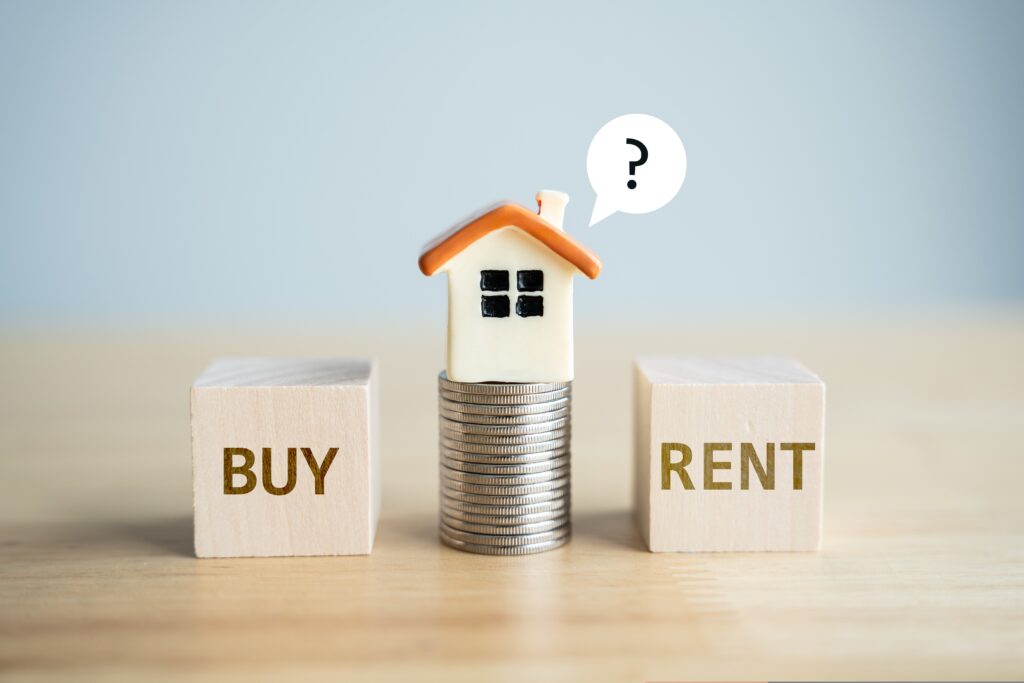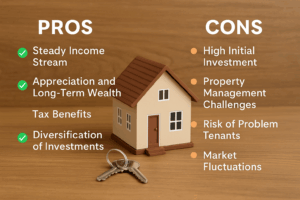Deciding whether to rent or buy a home is one of the biggest financial and lifestyle decisions you’ll ever make. Both options come with their own set of advantages and challenges, and what’s right for one person might not be ideal for another. With the real estate market in flux and interest rates, home prices, and rental costs constantly shifting, it’s more important than ever to assess your situation carefully.
So, how do you decide what makes the most sense for you? Let’s explore the key factors to consider when choosing between renting and buying a home.
Financial Considerations
For many people, the decision starts with money. Buying a home typically requires a larger upfront investment including a down payment, closing costs, inspections, and moving expenses. In contrast, renting usually involves just a security deposit and the first month’s rent, making it more accessible for those who aren’t yet financially ready to buy.
However, buying a home builds equity over time, which can serve as a long-term financial asset. Monthly mortgage payments contribute toward ownership, while rent payments go to a landlord and offer no return. Yet, owning also comes with ongoing responsibilities like property taxes, insurance, maintenance, and potential repairs all of which can add up quickly.
Renting, on the other hand, provides more predictable monthly expenses and often includes certain costs like maintenance or utilities in the rent. This can make budgeting simpler, especially if you’re saving for a future home purchase or prioritizing financial flexibility.
Lifestyle Flexibility
Another major factor is your lifestyle and future plans. Renting offers the freedom to relocate with relatively short notice typically just 30 to 60 days. This makes renting ideal for people who anticipate job changes, are exploring new areas, or simply want flexibility without being tied to a specific property.
Buying a home is better suited for those who plan to stay in one place for at least five to seven years. This timeframe allows homeowners to build equity and offset the upfront costs of buying. If you sell too soon, the transaction costs (like agent fees and taxes) might outweigh the benefits of ownership.
If your life or career is in transition, or if you’re unsure about a neighborhood or city, renting might give you the breathing room to make more informed long-term decisions.
Market Conditions and Timing
The state of the housing market also plays a crucial role. In a hot seller’s market with high home prices and low inventory, renting might be the smarter short-term move until conditions stabilize. Alternatively, if mortgage rates are favorable and prices are steady, buying could offer a better long-term investment opportunity.
Likewise, in cities with skyrocketing rental costs and limited availability, buying might provide cost savings over time, especially if you’re able to lock in a fixed mortgage rate.
Keep in mind that rent is not always cheaper. In some markets, monthly mortgage payments can actually be lower than rent payments for comparable properties. The key is to calculate total ownership costs including taxes, maintenance, and insurance when comparing the two.
Emotional and Personal Preferences
Finally, it’s not just about numbers. Some people find peace of mind in owning their space having the freedom to renovate, plant a garden, or build long-term roots in a community. For others, the idea of being tied to a mortgage or dealing with surprise repairs is stressful.
Renters typically enjoy more convenience and less responsibility, especially in managed properties with maintenance teams on call. Buyers enjoy pride of ownership and stability, but must be ready to take on the responsibilities that come with it.
There’s no one size fits all answer to the rent-versus-buy dilemma. The best decision depends on your financial readiness, career plans, lifestyle preferences, and market conditions. Start by evaluating your current situation and long-term goals. Are you ready to put down roots? Can you handle unexpected home repairs? Or is flexibility your top priority?
By asking the right questions and considering all angles, you can make a decision that supports both your personal goals and financial future.




